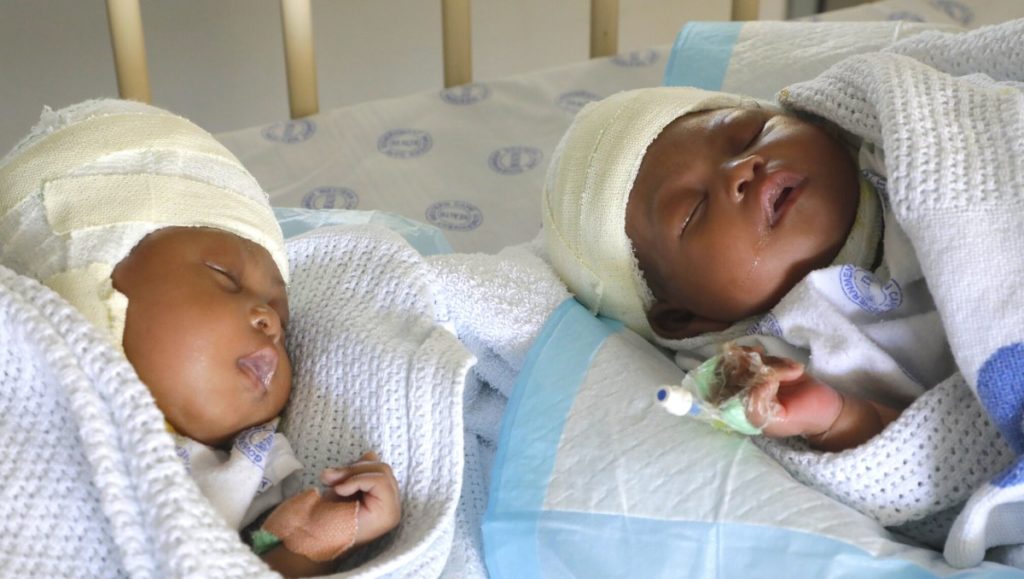A set of twins joined at the head, in what is medically referred to as craniopagus twinning, were successfully separated at the Red Cross War Memorial Children’s Hospital, a report says.
The twins, Siphosethu and Amahle, who were born in the Eastern Cape in February, were taken to the Cape Town hospital at only 4-days-old, IOL reported.
“We were fortunate in this case that the connection did not involve any shared brain tissue and didn’t involve major [blood] vessels going from one twin to the other,” the report quoted Professor Tony Figaji, head of paediatric neurosurgery at Red Cross War Memorial Children’s Hospital as saying.
Craniopagus twins occur approximately once in every 2.5 million live births worldwide.
A multi-disciplinary team at Red Cross War Memorial Children’s Hospital has performed a successful separation surgery for twins Siphosethu and Amahle, who were joined at the head (the rarest form of conjoined twinning). Read their incredible story here: https://t.co/eJAeej4mSD. pic.twitter.com/DN8iZUoCAG
— Western Cape Gov (@WesternCapeGov) May 11, 2021
Intricate operation
The report quoted the mother of the twins, Ntomikayise Tyhalisi, as saying: “I am overjoyed! I wasn’t expecting to leave here holding my children one in each arm.”
Professor Saleigh Adams, head of plastic surgery at the hospital said a team of surgeons was prepared for a marathon surgery.
“We were prepared for a six-hour, at least, surgery. On this occasion, the surgery lasted all of one-and-a-half hours. This is a huge plus for the recovery of the twins,” News24 quoted Adams as saying.
The focus now remained on ensuring the healthy healing of the surgical areas, the report said.
Follow-up care
Both patients and the mother were doing well and continued to receive follow-up care.
In 1988, another pair of conjoined twins were separated.
AP reported at the time that doctors separated the 17-month-old Siamese twins, joined at the head, in an intricate operation that took 7 1/2 hours.
They described the surgery by a 40-member medical team on Mpho and Mphonyana Mathibela as successful.
Mpho proved to be the stronger twin after the surgery, which led to her having to leave her weaker sister, Mphonyana, behind. Having been more afflicted after the surgery than her sister, Mphonyana died of pneumonia a year after they were separated, South African History Online said.
Picture: Twitter/@WesternCapegov

